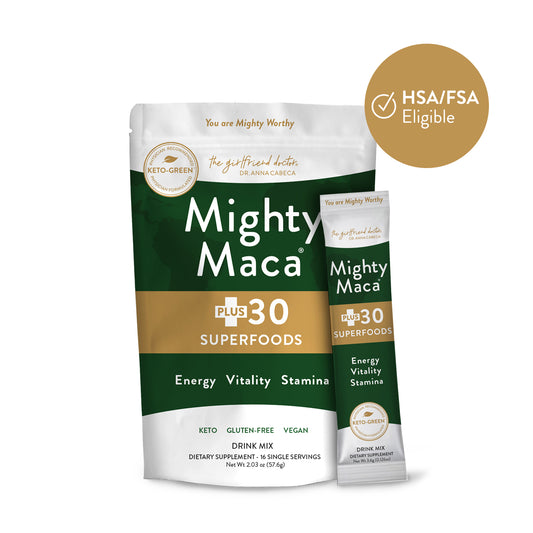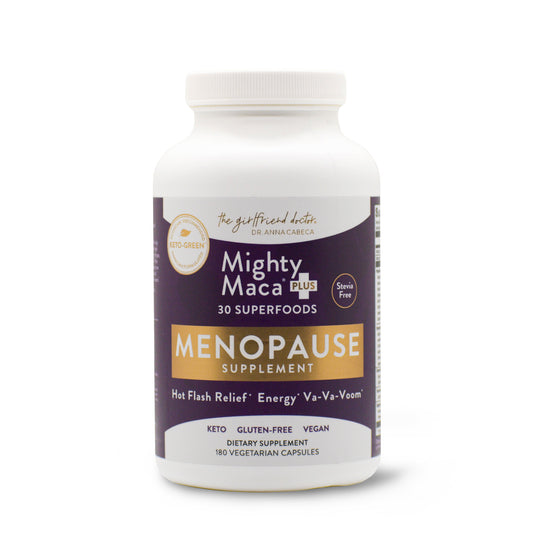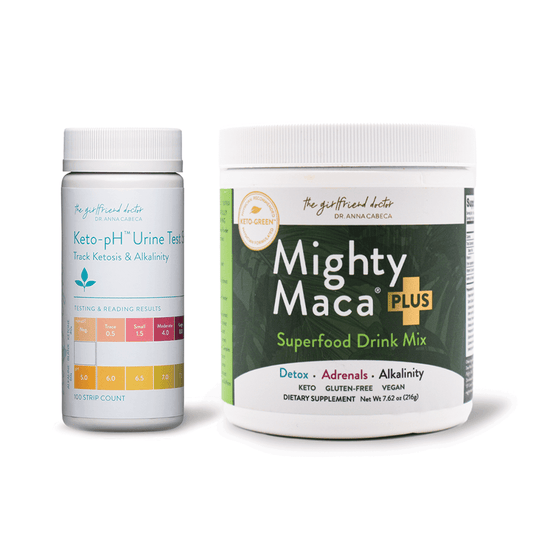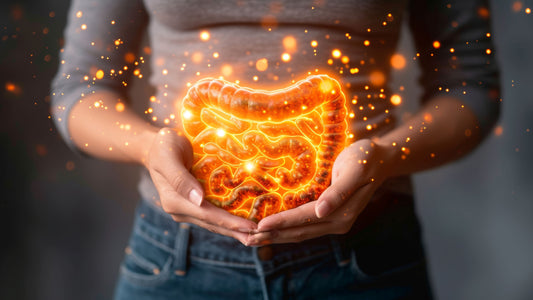As a gynecologist and women’s sexual health expert I have heard a lot about how impacting hot flashes can be.
They can embarrass you (if you let them!). They can make you uncomfortable. And they can make you feel a little less than the “Hot Mama” you really are!
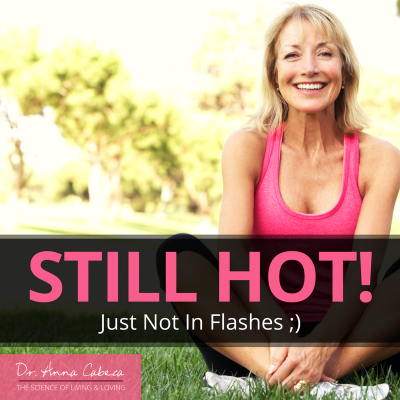
But hot flashes are a natural part of menopause, and they are the most frequently reported negative symptom women experience during this time.
Hot flashes usually show up in our 40’s and 50’s; when we are transitioning from fertile to infertile as our sexual hormones start to decline.
Hot flashes can last for years, with recent research (the SWAN study which spanned 17 years) finding that they lasted more than 7 years for more than half of the women in the study.
What Causes Hot Flashes?

Researchers still don’t know exactly what causes hot flashes and why some women experience them earlier or later than others, or why some women have more severe symptoms. Hormone changes during menopause are thought to be part of the answer, but hormone changes alone don’t fully explain the variations in women’s hot flashes.
A woman’s date of onset of hot flashes may determine the severity and length of hot flash symptoms she may experience over her life. If a woman starts to have hot flashes in the peri-menopause (while still having a period), for example, research has shown she is more likely to continue having them for a longer period of time.
Additionally, particular women may experience differing hot flash severity and length depending on ethnic, regional and lifestyle differences. For example, the above study found that African American women in their study experienced longer periods of hot flash symptoms. The study also found specific characteristics that related to longer-lasting periods of hot flashing included anxiety, perceived stress, and depressive symptoms.
Some other studies have found relationships (not necessarily cause and effect) between hot flash severity and obesity; others have found relationships with smoking and hot flash severity.
The good news is that menopause symptoms such as hot flashes, along with vaginal dryness and even that little urine leak when you laugh… can be improved upon!
Yes, really.
Today I will talk more about how to take the heat out of those hot flashes!
Explaining The Physical And Mental Impact Of Hot Flashes
While treating thousands of patients over the decades, and now with women in my restorative and sexual health programs, one of the most difficult issues for women in dealing with these symptoms is often simply explaining it to someone.
Sometimes you may feel the need to underscore that it is a significant health impact that you are suffering from, perhaps to your significant other or possibly a male colleague.
Sometimes people may make jokes about hot flashes, or trivialize them.
Unfortunately, hot flashes are one of those things that are hard to fully relate to, especially for men or for women who have not experienced them (or perhaps your teenagers don’t get why Mom needs to peel off her clothes from time to time!).
But for women who are truly miserable during this time, you may benefit from explaining how it really impacts your quality of life.
So What Do Hot Flashes Feel Like?
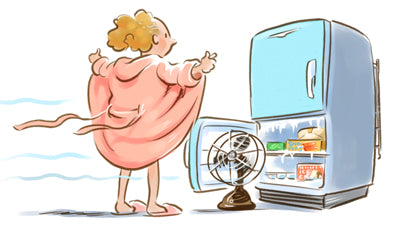
For most women, hot flashes come out of the blue without warning. A feeling of intense heat comes over a woman, and her face can become red and flushed. She may sweat profusely, and many women report a feeling of anxiety either before or during the hot flash. It can be incredibly uncomfortable and a woman may want to literally strip off her layers of clothes and do something to get chilled.
Standing in front of an open freezer can be quite delightful at this time!
Medically speaking, blood vessels near the surface of a woman’s skin dilate, this is the body’s attempt to cool off. The heart races to pump more blood to reach the surface of the skin where it is cooler, and that causes the red blush to the face and neck. A woman may sweat as that is another way the body tries to cool itself. Some women can experience a rapid heart rate, lightheadedness, or even feel nauseated. Some experience chills. At night the same experience can occur and these are called night sweats. A woman can be cold one minute, and the next minute need all the bed covers off and feel quite miserable.
Hot flashes can impact the quality of your life. They can cause embarrassment (nothing like a good hot flash while you’re at work!) and they can make sleep challenging.
[Good News] Hot Flashes Typically Stop...
The peri-menopause transition period, usually starts in your 30’s, somewhat quietly in the background. Your fluctuating hormones at this time may cause PMS symptoms and irregular periods. Progesterone is the first hormone to decline, followed by estrogen and others.
By a woman’s 40’s or 50’s’ she will usually experience more unpleasant – and daily - menopausal symptoms such as hot flashes, night sweats, insomnia and mood changes.
In a summary of longitudinal studies, it was observed that between 48.8% (SWAN study) to 79% (Penn Ovarian Aging Study) of post-menopausal women experienced hot flashes.
These studies found that the peak prevalence of hot flashes occurs during the late menopausal transition phase and during the early post-menopausal phase of a woman’s life.
Unlike with vaginal dryness and urinary leakage issues occurring at this same time, hot flashes typically do eventually go away, even without any treatment.
But why let these symptoms rule your life in the meantime?
Hot Flash Relief: Getting Your Hot Flashes To Chill Out!
This section will cover ways to reduce hot flash misery,
- Avoiding hot flash triggers
- Controlling the environment to be hot flash friendly
- Supplements that may help
- Essential oils that cool and help with sleep
- Hormone replacement therapy
- Redefining hot flashes and menopause
Avoiding hot flash triggers
Every woman is different, but typical triggers include caffeine and alcohol, food sensitivities (such as dairy), refined sugars and simple carbs (the white processed stuff, very acidic to your body!), smoking, hot foods (temperature or spiciness), warm temperatures in your environment (especially in the bedroom at night), and stress.

You need to identify what your triggers are. Keeping a journal might help you figure that out. Once you know your triggers, avoid them! Sounds simple… but yes, I know it isn’t always easy.
Also consider eating an alkaline diet at this time, which supports hormone balance and overall health. You’ll find that many of the lifestyle things you need to do to keep your body alkaline will also help with hot flashes, such as: a healthier diet, consumption of maca, getting enough sleep, reducing stress and minimizing all of the vices!
Stress in particular is a big trigger.
Our stress hormone, cortisol, is key to how we will experience menopause as it affects overall inflammation, hormone balance and our body's ability to remain insulin sensitive.
Cortisol is a natural anti-inflammatory. But also, we know that when we excrete high spikes of cortisol (like during periods of chronic stress), that’s going to affect glucose production. So whether cortisol is too high or too low, we’re going to have an issue with glucose production and metabolism, and increasing hemoglobin A1c and inflammation. So we’re going to affect our inflammatory pathways.
I would say that insulin and cortisol may have a bigger role in many menopausal symptoms than estrogen, progesterone, and testosterone (although those are important and on the decline at this time).
Unless we’re supporting our body’s ability to have insulin sensitivity and counter the spiking cortisol, we're not going to get hormonal balance and we'll likely struggle with inflammatory symptoms such as hot flashes and night sweats, along with the weight gain, the mood swings, the anxiety and insomnia, etc…. A Keto-Green® diet and lifestyle will help with this by optimizing blood sugar and insulin levels.
Better stress management practices will also help.
Incorporating some good breathing exercises and meditation time into your daily schedule is important.
Deep belly breathing (deep inside the abdomen, with slow breaths at about 5-6 breaths per minute) is best. Practice some deep belly breathing for 15 minutes every morning and evening, and also at the onset of hot flashes.
Meditation practices can also help. I am a proponent of daily gratitude journaling as it helps me live a life of positivity, and greatly reduces the stress that I allow to intrude upon my life.
Things like connecting with nature each day will also help with stress. One of my favorite hormones, Oxytocin, is a beautiful counter to stress. Oxytocin is the hormone of love and bonding. are you deficient in this wonderful hormone?
Take my Oxytocin quiz to find out!
While daily exercise is good, intense exercise can in fact be a trigger for hot flashes, so try an exercise like walking or dancing if more intense exercise turns out to be a trigger for you. Practices like HeartMath™ can also help.
Controlling The Environment To Be Hot Flash Friendly
I always say do the simple stuff first. Wear lightweight clothes made with natural fibers and always wear layers that can be easily peeled off (and put back on!). Literally live your life with more “chill”! At night, keep the temperature low (65 degrees F) and use a “chill pillow”, cooling blankets or even a cooling mattress pad or mattress. Bring a fan into work and into the kitchen while you cook.Supplements that may help with hot flashes
Always discuss supplements with your doctor. Any supplements that help balance hormones, support adrenal health and reduce inflammation will help support a happier menopause experience!
Some that I recommend for clients experiencing hot flashes and menopausal symptoms include maca, progesterone (which is a hormone but can be purchased without a prescription), and vitamin E.
Maca: My favorite adaptogen herb - which means it is a great counter to stress - will help balance hormones, and maca has been shown to improve libido and menopause symptoms like hot flashes.
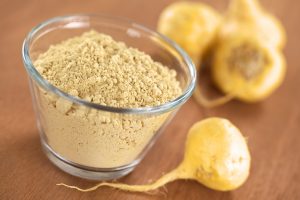
In one study a maca treatment was associated with the alleviation of many menopausal symptoms including reductions in the frequency and severity of hot flashes, excessive sweating, nervousness, and interrupted sleep patterns .
It can also help with libido and fertility for women and men! I have used maca in my superfoods drink, Mighty Maca® Plus for all of these reasons. Mighty Maca nourishes your adrenals, detoxifies and helps with alkalinity, too.
Progesterone: Another great support for your adrenals and overall hormone balance. Helps with stress response, sleep and mood. I have an over-the-counter progesterone cream, Balance Cream, that is a beautiful formulation. Other adrenal support includes Vitamin C, healthy fats (ghee, coconut oil), and B vitamins.
Vitamin E: Known as an antioxidant with many health benefits. In one small 2007 study, 400 IU vitamin E (daily) was associated with a reduction in the severity of hot flashes.
Get Alkaline! We need to control cortisol’s fluctuations, and creating a good nutritional and alkaline baseline can really help this!
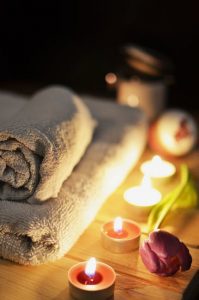
Essential Oils That Cool And Help With Sleep
You can find information online about essential oils that may ease the discomfort of hot flashes.
A few of my favorites are lavender oil, which helps with sleep and just “chilling” people out.
Also, clary sage oil is used to reduce stress as well as aid with cooling. Peppermint oil also provides a cooling sensation.
A cool bath with a few drops of lavender oil can be quite refreshing!
Check out a guest blog post by my colleague Dr. Eric Zielinski on the 7 Essential Oils that can help with Menopause! Wonderful info (and you can get his eBook for free!)
Hormone replacement therapy
Bio-identical HRT (hormone replacement therapy) can be an option should hot flashes be severe and if other therapies do not offer relief. This is estrogen therapy but using manufactured hormones that duplicate those found naturally in the body.
The issue with HRT is that the added estrogen circulates throughout the bloodstream, so it is not recommended for women having breast cancer, and is also not recommended for other specific health conditions such as a history of blood clots or cardiovascular disease.
Note that local estrogen therapies, such as creams or vaginal suppositories, have not been found to be effective with hot flashes, although they can help with vaginal dryness and pain during intercourse.
There are a variety of other “hot flash” treatments in the news, such as prescription options including clonidine (a blood pressure medication), gabapentin (a migraine medication), and antidepressants (fluoxetine and paroxetine). However many in the medical community do not agree with their use due to side effects and potential risks.
I do not recommend them, but add them here for completeness so that you can discuss them with your doctor if you wish.
Redefining hot flashes and menopause
I believe that how you experience something really depends on your attitude. If you dread menopause and fear you will have misery each day, you likely will! And don’t forget that there are a lot of positive things about your menopause journey.
What?! Positive things about menopause?
- YES!
Menopause is about a whole new journey opening up for you.

Haven’t you ever noticed that women gain an incredible, sexy confidence as they age? It is true!!! And we also take on a new-found independence… kids may be out of the nest (or soon to be), some of us may return to work for the first time since having kids, or maybe we finally get to retire!!!
There are many new opportunities and freedoms (including no more periods!) during this time.
Many of my menopausal patients find that they are finally in a place in their life where they can focus on things that feed their spirit rather than tending to everyone else’s needs. Perhaps taking on a previous or new-found passion, or a bucket-list adventure.
The hormonal and neurotransmitter shifts that occur during menopause also provide an opportunity for what I refer to as, “energized enlightenment.” This is a time to focus on enlivening the spirit that glows within each of us.
So take some natural steps to reduce hot flash symptoms, and consider my new Julva® anti-aging feminine cream for the vulva should you have vaginal dryness, pain during intercourse and/or urinary leakage… and enjoy this time in your life!
References
- https://nccih.nih.gov/sites/nccam.nih.gov/files/mayo.pdf
- http://jamanetwork.com/journals/jamainternalmedicine/fullarticle/2110996
- http://www.amjmed.com/article/S0002-9343(05)00885-5/fulltext#section.0025
- https://www.ncbi.nlm.nih.gov/pmc/articles/PMC3614647/
- https://www.ncbi.nlm.nih.gov/pubmed/17664882
